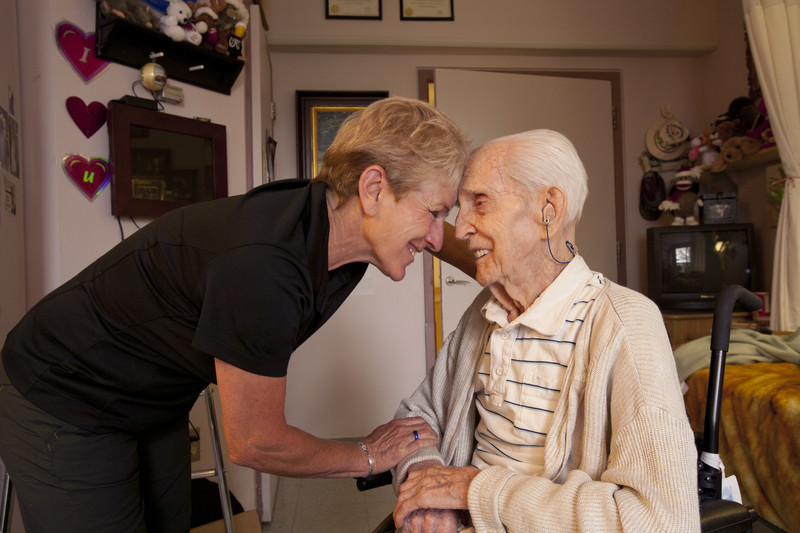Elderly Care Advice: Glaucoma Facts for National Glaucoma Awareness Month
Uncategorized | January 28, 2018
Glaucoma is a serious eye disease even though it is painless. Glaucoma can damage the optic nerve, which allows us to see by connecting the eye to the brain. Often found in senior citizens, glaucoma is one of the leading causes of blindness. Read on to learn more from elderly care experts about glaucoma risk factors, symptoms, causes, and treatments.
Glaucoma Risk Factors
The greatest risk factor for glaucoma is high pressure within the eye. Other risk factors can include old age, a family history of glaucoma, a history of anemia or shock, previous eye injuries, thin corneas, nearsightedness, and steroid use.
Symptoms of Glaucoma
The most common of the five different types of glaucoma is open-angle glaucoma. It’s essential that older adults visit their ophthalmologist yearly since there are no symptoms besides a gradual vision loss, and any vision changes should be monitored.
Another type of glaucoma, narrow-angle glaucoma, is considered a medical emergency. If an elderly person has symptoms such as blurred vision, seeing light halos, severe eye pain, and redness, nausea, or vomiting, they should contact their doctor immediately even if they have help from elderly care.
Causes of Glaucoma
Usually, glaucoma occurs when eye fluid does not drain properly. As the fluid inside the eye builds up, so does the pressure within the eye. The pressure then affects the optic nerve, which can lead to vision loss or even blindness over time. Those with normal eye pressure can also develop glaucoma if the optic nerve has poor blood flow or is fragile.
Glaucoma Treatments
A doctor can treat glaucoma in a number of ways. One of the most common treatments for glaucoma is to apply eye drops. Eye drops will reduce the formation of eye fluid and increase outflow, relieving pressure. Side effects of glaucoma eye drops include stinging, redness, and irritation. Seniors should tell their doctor about any medication allergies, and if eye drops do no help their doctor may prescribe an oral medication.
Laser surgery may be an option to increase eye fluid flow for seniors with open-angle glaucoma. For those with angle-closure glaucoma, laser surgery can be effective to stop fluid blockage. Examples of laser surgeries that may be performed to treat glaucoma include cyclophotocoagulation, trabeculoplasty, and iridotomy.
Changes in lifestyle and home remedies can also be used to improve eye health and glaucoma. Sleeping with an elevated head, a diet full of dark leafy green vegetables and omega-3 fatty acids, and frequent exercise is recommended by elderly care experts.
Glaucoma cannot be prevented, but if it is diagnosed and treated early it can be controlled. Seniors who visit their ophthalmologist yearly greatly reduce their risk of blindness and can continue to enjoy a higher quality of life with healthy eyes in their golden years.
Individualized Home Care Options
Long-Term Home Care, 24 Hour Home Care & Short Term Care Options Customized for You







